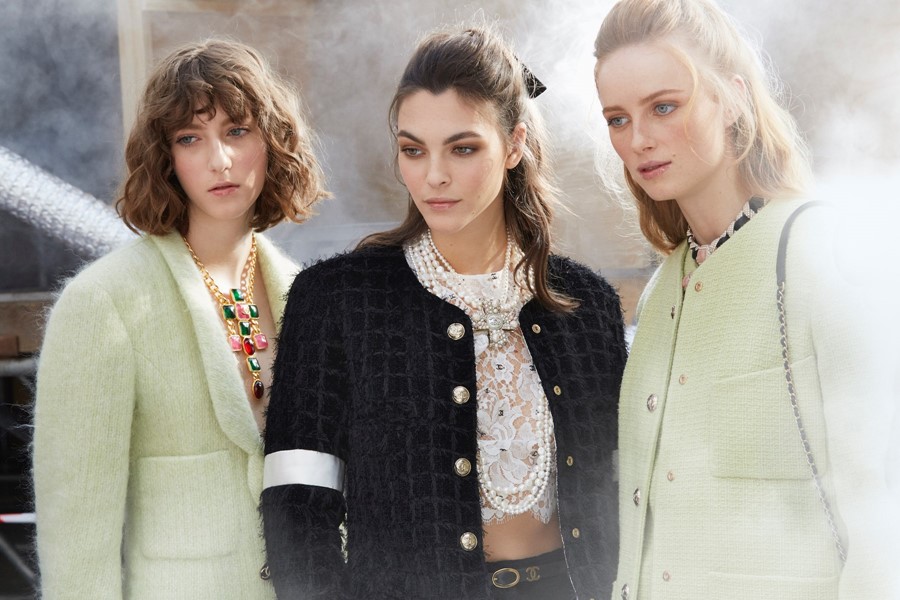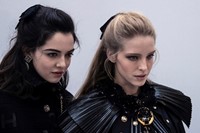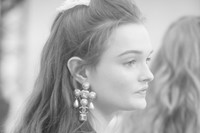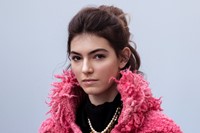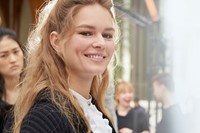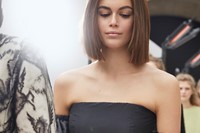“Romanticism but without any flourishes. Emotions but without any frills,” Virginie Viard said of her latest offering for Chanel, shown yesterday at the tail-end of Paris Fashion Week
Virginie Viard’s tenure at Chanel so far has been defined by a certain lightness of touch; a desire to move away from the grandiosities of her predecessor, the inimitable Karl Lagerfeld, towards something more intimate. She has done so by excavating the spirit of the house’s founder, Gabrielle “Coco” Chanel, setting her collections amid recreations of her Rue Cambon apartment, or the cloistered garden of Aubazine, the Cistercian abbey where the mythic designer spent her childhood.
“I always question the context, which has nothing to do with the way we lived decades ago. What would a woman like today? How would she wear it?” Viard said on the occasion of her first Métiers d’Art collection, late last year. It is a question you could imagine Gabrielle Chanel herself asking; her own designs amounted to a kind of logic, clothing carefully formulated for the changing demands of a woman’s life at the beginning of a new century. What she gave those women who wore her clothes was freedom – a word evoked by successor, Viard, to describe her Autumn/Winter 2020 collection, shown in Paris yesterday.
“Freedom, energy, desire for the absolute,” she elucidated, via the collection’s notes. “Romanticism but without any flourishes. Emotions but without any frills.” The set was based on the camellia flower – an emblem of the house, which dates back to its very beginnings – here, reimagined as gently curved white tiers, which surrounded a mirrored runway gently misted with dry ice. It spoke of a want for purity, drawing focus to the women, and the clothes. “For the runway show, no frame,” Viard asserted. “I don’t like framing.”
That said, the collection began with a photograph of Lagerfeld, perhaps fashion’s greatest showman, taken in the 1980s (his presence and influence continues to be felt in Viard’s collections; “there are the codes invented by Gabrielle Chanel and made sublime by Karl Lagerfeld, which I like mixing up too. I like the idea of a patchwork,” she has previously said). In it, he wears a striped suit and jodhpurs, tucked into a pair of riding boots. Those boots, calf-high and folded over at the cuff, became something of the collection’s nexus: worn with every look, they suggested an equestrian inspiration, reiterated in jodhpur-like trousers, fastened along the side seam with golden buttons, and casaques, silk jockey blouses (Gabrielle Chanel had a racehorse named Romantica, who Viard referenced on the notes).
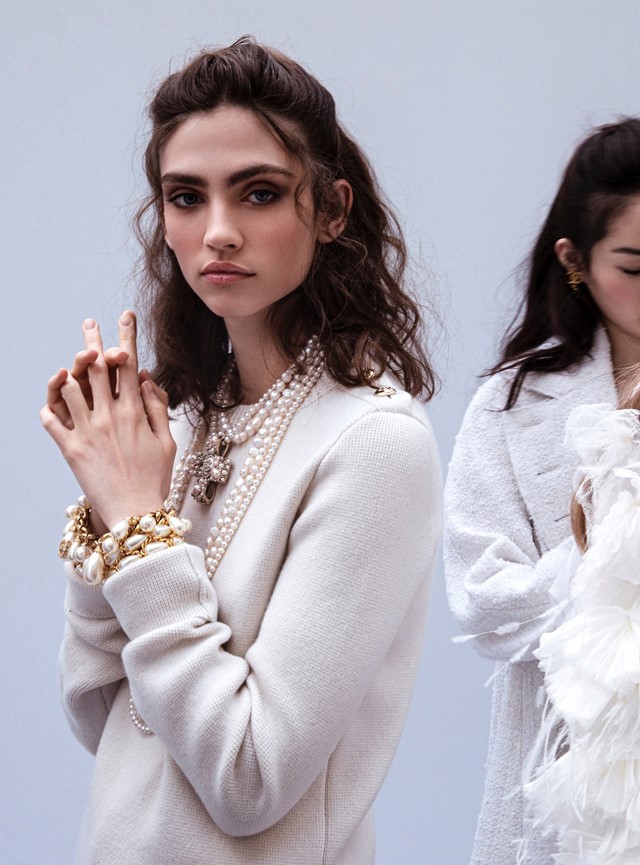
Elsewhere, the 1980s felt prescient. Intarsia-knit sweaters were decorated with colourful Byzantine crosses; there were bandeau tops (in bouclé tweed, and adorned with a camellia), puff-sleeved LBDs, trousers which opened along the side with poppers, shocks of electric pink, and a proliferance of gold and pearl costume jewellery, recalling Desperately Seeking Susan-era Madonna. Tailoring, which is central to the house, was scalloped along the edges, or overlaid with intricate lace, a symbol of the house’s artisan might.
Nonetheless, a sense of simplicity reigned. Models walked in twos or threes, faces near-bare of make-up, some chatting as they went. “Movement, air ... A very simple, very pure momentum,” Viard surmised. As she forges her vision for Chanel – for now, and for the future – that momentum only continues to build.
